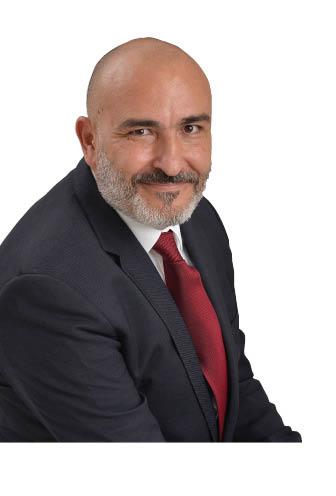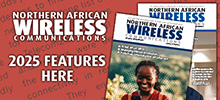06 September 2021
Mounir El Aichaoui, Head for Mobile Networks for North and West Africa at Nokia
As communications service providers (CSPs) across the globe race towards the goal of commercial 5G deployments, the picture in North and West Africa has been slightly different. The region accounts for only one 5G CSP and that is Togocom which at the end of 2020 launched the first and sole 5G network in North and West Africa. There has, however, been a lot of trials and requests relative to 5G from numerous CSPs. We expect 5G deployments to start gaining momentum towards early 2022 and into 2023.
There are several reasons for this delay in uptake, with many countries still prioritising 4G, 4.5G, and 4.9G to extract as much potential and value out of those network investments before making the shift to 5G. This coupled with the COVID-19 pandemic that rocked the world in 2020 and continues to cause uncertainties, has played a big role in delaying rollout.
5G comes with the promise of completely changing the way we do things. It allows us to communicate faster, as well as communicate and share bigger loads. It also allows for more automated machines and sensors that are self-reliant or self-dependent that will change the way we work, interact, and drive our businesses and communities, essentially automating industries. It will also allow for the virtualisation of communications, infrastructure, and industries. It paves the way for smart machines, for example. In the 3G and 4G era, we programmed machines to execute programmes.
In the era of 5G, we will see machines self-programming, by analysing their environments and what is happening around them, and then programming themselves for the different options to those scenarios. Examples of use cases include self-driving cars, container handling in harbours, and construction. That is one of the aspects that will change with 5G and the promise of lower latency.
The second use case is the Internet of Things (IoT), as 5G enables more and more objects around us to be connected. The third use case is about people and the way we communicate, or virtualisation. Virtualisation of not only the conversation but all our assets, removing the need for physical visits to sites. In Nokia’s case, for example, we are required to send a team to check every installation to ensure that quality standards are adhered to, which often requires multiple visits. Through virtualisation, however, this can be done remotely. Imagine the savings on time and bandwidth if networks comprising five to six thousand units can be managed remotely, eliminating the need for travel. You could have everything at your fingertips in three-dimension and in real-time and you will not need to go and do a physical inspection. This could be a game-changer for CSPs.
On the African continent, 5G also delivers on the promise of making services more broadly available to citizens, particularly those in remote areas. From eliminating the need to visit a doctor in person, where citizens often have to travel vast distances to remote surgeries, it presents an opportunity to bring the services closer to the citizen. And that is very important for a continent like Africa, where there is still only a 50% penetration rate for mobile, compared to some continents where mobile penetration rates are sitting at 100 to 120%. In Africa, it is not just about making calls, but rather connecting them to essential services. It is about giving them access to education, health, and safety services, and connecting people with the administration of their respective countries.
New technologies often drive new industry standards and even new industries, and this, in turn, requires new skills sets. For the telecommunications industry, it is straight forward – the name of the game will be digitalisation and automation. So, the industry will require the skills needed around the creation, maintenance, and optimisation of this automation to move forward. From a societal perspective, one of the key buzzwords remains Big Data. We are already seeing jobs emerging that did not exist five years ago, and many of them focus on Big Data. Where in the past the most sought-after job titles included engineer, doctor, and teacher, today it is data scientist, data architect, database engineer, and security expert. And as the amount of data societies are exposed to increases exponentially with 5G and IoT, everything will become data-oriented, which means that data will have to be managed and used effectively to evolve industries and kept secure.
Nokia has a rich history of creating critical networks in Africa and connecting the unconnected. Our journey in building solid critical telecommunications networks – 1G to 5G -- for CSPs and enterprises with our comprehensive technology portfolio continues with many milestones to provide more inclusive access globally including in Africa. At Nokia, we create the technology that helps the world act together. Connecting people provides us with a sense of fulfilment and enables us to add something to the world and our communities. Currently, the 5G momentum continues to grow for Nokia globally and in Africa, marked with 230 + commercial 5G agreements and 68 live CSP 5G references, as on August 30 2021. At the same time, Nokia continues to cater to the demand for 3G and 4G, as the African market is a diversified telecoms market. And while we still have some way to go in the African context, we continue connecting communities, giving them access to valuable critical services that improve their lives.






